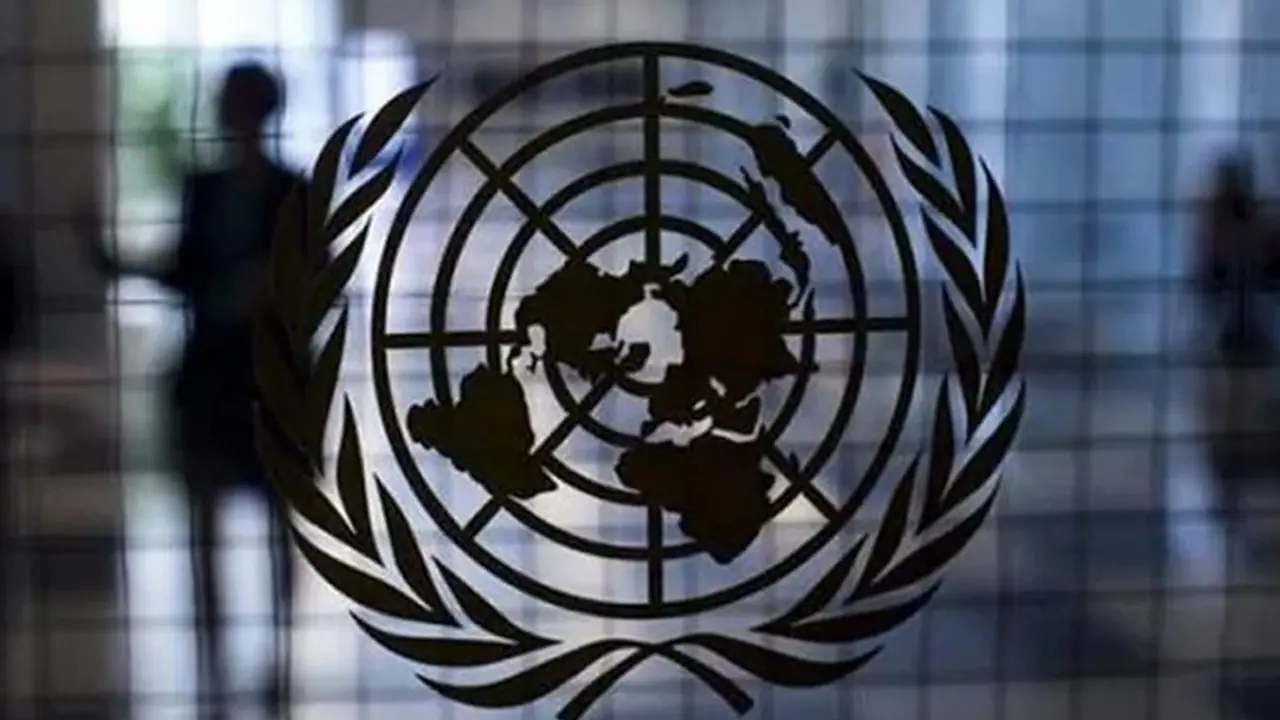The United Nations Security Council has unanimously adopted a resolution demanding an "immediate cessation of hostilities" for at least 90 days in key conflicts including Syria, Yemen, Libya, South Sudan and Congo to tackle the coronavirus pandemic.
Geneva: The UN Security Council demanded an “immediate cessation of hostilities” in key conflicts including Syria, Yemen, Libya, South Sudan and Congo on Wednesday to tackle COVID-19 in its first resolution on the new coronavirus.

The UN’s most powerful body voted unanimously to adopt the resolution after the United States and China resolved a lengthy dispute over mentioning the World Health Organization.
Germany’s UN Ambassador Christoph Heusgen, the council president for July, announced the result, calling it “a sign for hope for all people currently living in conflict zones around the world.”
“It is now the obligation of the council – and all parties to armed conflicts – to implement this resolution in our work this month and beyond,” he said.
The resolution backs UN Secretary-General Antonio Guterres’ March 23 call for global ceasefires to tackle the pandemic, and demands an “immediate cessation of hostilities” in all conflicts on its agenda which include key conflicts in the Middle East, Africa and elsewhere.
It calls on all warring parties “to engage immediately in a durable humanitarian pause for at least 90 consecutive days” to enable the safe and unhindered delivery of humanitarian aid and medical evacuations.
The resolution, sponsored by France and Tunisia, states that these measures do not apply to military operations against the Islamic State and al-Qaida extremist groups and their affiliates.
UN Secretary-General Antonio Guterres welcomed the Security Council’s response to his appeal, saying the resolution “will send an important signal to conflict parties and may help change calculations on the ground,” according to UN spokesman Stephane Dujarric.
The UN chief again urged countries to redouble efforts for peace in conflicts where they have influence and said he looks forward to working with all parties “to advance efforts towards concrete cease-fires and durable peace,” his spokesman said.
Repeated attempts to adopt a Security Council resolution have been stymied over a reference to the World Health Organization.
President Donald Trump suspended funding to WHO in early April, accusing the UN health agency of failing to stop the virus from spreading when it first surfaced in China. He said it “must be held accountable,” and accused WHO of parroting Beijing.
China strongly supports WHO and insisted that its role in calling for global action on COVID-19 be included in any resolution, diplomats said, while the US insisted on a reference to “transparency” on COVID-19 and no mention of the WHO.
The resolution just adopted doesn’t mention either the WHO, a UN health agency, or transparency.
But it does take note of a resolution adopted April 2 by the 193-member UN General Assembly which “calls for intensified international cooperation to contain, mitigate and defeat the pandemic, including by exchanging information, scientific knowledge and best practices and by applying the relevant guidelines recommended by the World Health Organization.”
In May, Security Council members thought they had agreement on a compromise French-Tunisian draft that didn’t directly mention the UN health agency, but diplomats said the United States changed its mind and objected after earlier agreeing.
China’s UN Ambassador Zhang Jun told a press briefing Wednesday afternoon that Beijing and almost all council members wanted the council to respond quickly to the secretary-general’s ceasefire call and blamed the US for “politicizing this process.”
But he welcomed the council’s “unity” in adopting the resolution, calling it “a victory” for the Security Council, for multilateralism and for the people and “a meaningful result” even though it’s a little late.
France’s UN Ambassador Nicolas de Rivière and Tunisia’s UN Ambassador Kaïs Kabtani called the resolution “an important milestone,” saying it “will be critical to mitigate the peace and security implications of the COVID-19 pandemic.”
Stressing their support for the WHO, they said in a joint statement, “France and Tunisia would like to pay tribute to the different UN entities, including the World Health Organization, which are playing a key role in the response to the pandemic.”
Secretary-General Guterres told a press conference last Thursday that his appeal for a global ceasefire has been endorsed by nearly 180 countries, more than 20 armed groups, religious leaders and millions of members of civil society.
“The difficulty is to implement it,” he said.
The secretary-general said he and UN envoys are working together “to establish effective ceasefires and doing everything possible to overcome the legacy of long-lasting conflicts with deep mistrust among the parties and spoilers with a vested interest in disruption.”
The General Assembly adopted another resolution on April 20 urging global action to rapidly scale up development, manufacturing and access to medicine, vaccines and medical equipment to confront the pandemic.
While General Assembly resolutions reflect the opinion of governments around the world, they are not legally binding. By contrast, Security Council resolutions are legally binding.
(With inputs from agency)
